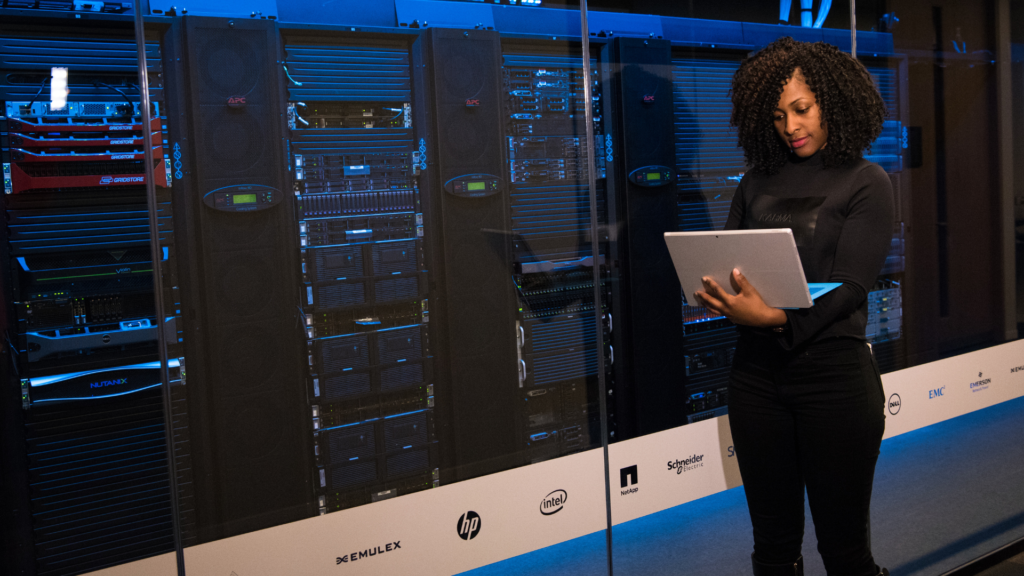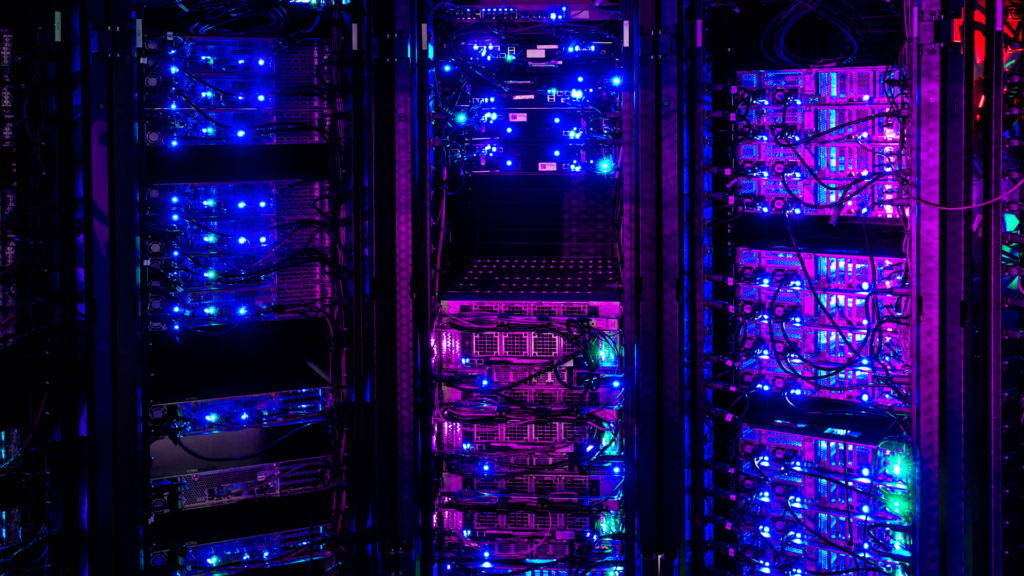
Table of Contents
Bare Metal vs. VPS Hosting: An In-Depth Comparison
Choosing the right server infrastructure is pivotal to achieving optimal performance, security, and cost-efficiency. Bare Metal Servers and Virtual Private Servers (VPS) are two of the most popular choices. Each serves distinct needs and offers unique advantages. This article compares Bare Metal vs. VPS hosting to help determine which solution is right for you.
Understanding Bare Metal Servers
Bare Metal Servers are physical server hardware dedicated to a single tenant. Unlike shared hosting solutions, these servers offer the full capacity of their resources—CPU, memory, and storage—without any virtualization layer. This dedicated environment ensures high performance. This makes Bare Metal Servers ideal for resource-intensive applications such as high-traffic websites, database management, and large-scale enterprise applications.
Advantages of Bare Metal Servers
- Performance: With dedicated resources, Bare Metal Servers provide unmatched processing power and memory access speeds, essential for applications requiring high computational power.
- Security: The absence of a shared environment significantly reduces vulnerability to cyber threats, offering a more secure hosting solution.
- Control and Customization: Users have complete control over the server, including choice of operating system, hardware configurations, and software installations, allowing for a highly customized environment tailored to specific needs.

Understanding Virtual Private Servers (VPS)
Virtual Private Servers (VPS) are a hybrid between shared hosting and dedicated servers. A VPS is a partitioned section of a physical server created using virtualization technology. It simulates a dedicated server environment within a shared physical host. This setup provides users with a private slice of server resources, balancing cost and performance.
Advantages of Virtual Private Servers
- Cost-Effectiveness: VPS hosting is more affordable than dedicated hosting, making it an attractive option for small to medium-sized businesses and personal projects.
- Scalability: Resources can be easily scaled up or down based on demand, providing flexibility to handle traffic spikes or growth phases without significant investment.
- Flexibility: VPS hosting supports a wide range of applications and services, making it suitable for various use cases from web hosting to application development.

Bare Metal Servers vs. VPS Comparison
Performance
Bare Metal Servers offer superior performance due to their dedicated resources, which are crucial for applications with high processing demands. VPS, while efficient, may provide a lower level of performance. The is especially true under heavy load, due to the underlying shared physical resources.
Cost
The initial setup and ongoing costs of Bare Metal Servers are higher than those of VPS. This makes VPS a more cost-effective solution for budget-conscious businesses and projects. However, investment in Bare Metal Servers can be justified for large organizations or applications where performance is critical.
Control and Customization
Bare Metal Servers offer unparalleled control and customization options, as users can access the physical hardware directly. VPS provides a degree of customization and control that is sufficient for most users. They cannot match the flexibility offered by Bare Metal Servers, however.
Scalability
VPS stands out for its scalability, allowing users to adjust resources quickly to meet changing demands. While you can also scale Bare Metal Servers, the process generally becomes more complex and involves changes to physical hardware.
Security
Bare Metal Servers provide a more secure environment due to their dedicated nature. While secure, VPS shares a physical host with other virtual servers, potentially introducing vulnerabilities.
Choosing Between Bare Metal Servers and VPS
The choice between Bare Metal Servers and VPS should be based on specific needs, including the business size, budget constraints, and technical requirements. Bare Metal Servers are preferable for applications where performance and security are paramount. In contrast, VPS offers a flexible and cost-effective solution for businesses needing scalable resources and those with moderate performance requirements.

Exploring Alternatives: Beyond Bare Metal and VPS
While Bare Metal Servers and VPS Servers are prevalent choices for hosting solutions, technological advancements have broadened the horizon, offering several other alternatives that cater to diverse needs and preferences. Understanding these options can help customers make an even more informed decision when selecting their ideal hosting solution.
Cloud Hosting
Cloud hosting represents a significant shift from traditional hosting models. Instead of relying on a single server (physical or virtual), cloud hosting utilizes a network of connected virtual and physical cloud servers, hosting the application or website in a flexible, scalable environment. This model offers several benefits:
- Scalability: Instantaneous scaling of resources to accommodate varying loads, making it ideal for applications with fluctuating traffic.
- Reliability: Enhanced uptime and reliability, as the workload can be seamlessly transferred to other servers in case of a failure.
- Cost-Effectiveness: Pay-as-you-go pricing models mean you only pay for the resources you use, which can be more cost-effective for certain usage patterns.
Managed Hosting
Managed hosting services take the hassle out of server management, providing businesses with a hands-off approach to their hosting needs. This service is perfect for organizations needing more in-house IT resources or those preferring to focus on their core business rather than server management tasks. Managed hosting can be based on dedicated, VPS, or cloud infrastructures and includes benefits such as:
- Expert Management: Routine server management tasks, including updates, security patches, and backups, are handled by the provider.
- Performance Optimization: Servers are optimized for specific applications, ensuring the best performance.
- Enhanced Security: Comprehensive security measures protect your data, including regular monitoring and threat mitigation.

Colocation
Colocation services offer an alternative where businesses can rent space for their server hardware in a third-party data center. This solution combines the control and power of owning a Bare Metal Server with the benefits of a professional data center’s infrastructure, including:
- High-End Infrastructure: Access to advanced cooling, power, and connectivity options that might be too costly to implement on-premises.
- Scalability: The ability to easily add more hardware or upgrade existing hardware.
- Security and Compliance: Enhanced physical security measures and compliance with industry regulations, suitable for sensitive data handling.
Serverless Computing
Serverless computing, also known as Function as a Service (FaaS), abstracts the server layer, allowing developers to run code responding to events without managing the underlying infrastructure. This model is suited for microservices architectures and offers:
- Cost Efficiency: You only pay for the execution time of your functions, not for idle server time.
- Scalability: Automatically scales with the application’s needs, from a few daily requests to thousands per second.
- Simplified Operations: Removes the need to manage, update, or scale servers manually.
Containerization
Containerization, with technologies like Docker and Kubernetes, allows developers to package applications with all their dependencies into containers. This approach provides an alternative to traditional server models by offering:
- Portability: Containers can run consistently across different environments, reducing compatibility issues.
- Efficiency: Containers share the OS kernel, making them lighter and faster than traditional VMs.
- Scalability and Management: Container orchestration tools like Kubernetes automate the deployment, scaling, and management of containerized applications.
The choice of hosting solutions has expanded well beyond Bare Metal Servers and VPS, encompassing cloud hosting, managed hosting, colocation, serverless computing, and containerization. Each option presents a set of advantages tailored to different business models, technical requirements, and operational preferences. By evaluating these alternatives alongside Bare Metal and VPS solutions, organizations can find the most suitable hosting environment that aligns with their objectives, budget, and future growth prospects

Conclusion
Bare Metal Servers and Virtual Private Servers offer distinct advantages and serve different purposes. By understanding the detailed comparisons and considering the specific needs of a project or business, decision-makers can select the most appropriate hosting solution. Whether prioritizing performance and security with Bare Metal Servers or seeking cost-efficiency and scalability with VPS, the key is to align the choice with the organization’s goals and technical requirements.
Brightlio Delivers Bare Metal and VPS Hosting Solutions!
If you are considering bare metal or VPS hosting, Brightlio can help. We partner with a network of global hosting solution providers to deliver customized solutions that meet your needs and budget. Additionally, we offer cloud, colocation, connectivity, unified communications, value-added resale, and advisory services. This allows us to be a partner for all of your technology needs.
Brightlio is committed to being your most trusted and responsive IT partner. Get started today!
FAQ: VPS vs. Bare Metal
What is a Bare Metal Server?
A single customer receives dedication from a Bare Metal Server, which provides exclusive access to all its resources. Unlike environments that share resources among multiple customers, a Bare Metal Server gives one client the entire physical server’s processing power and memory, without a virtualization layer.
How does a Virtual Private Server (VPS) differ from a Bare Metal Server?
A Virtual Private Server (VPS) hosts multiple virtual servers on a single physical server using hypervisor software to allocate resources among them. Each VPS operates independently with its own operating system, allowing multiple customers to share the physical server’s resources. The key differences between VPS hosting and Bare Metal Servers include resource allocation, performance, and cost, with VPS offering a more cost-effective solution for users needing less than the full capacity of an entire server.
Can I run multiple operating systems on a Bare Metal Server?
Yes, with full root access to the Bare Metal Server, you can configure the server to run multiple operating systems, either by partitioning the server or by using virtualization technology to create virtual machines. This setup combines the power of a dedicated bare metal with the flexibility of virtual server hosting.
What is meant by “full root access” in the context of server hosting?
Full root access refers to having complete control over a server, allowing the user to install any software, make any configuration changes, and manage all aspects of the server’s operating system and hardware. This level of access is a feature of both Bare Metal Servers and VPS hosting, granting users the autonomy to tailor their server environments to their specific needs.
How do Cloud Providers utilize Bare Metal Servers?
Cloud providers offer dedicated bare metal services to customers needing the performance and security advantages of traditional bare metal while benefiting from the cloud’s flexibility and scalability. These services allow customers to rent entire physical servers, providing isolation from other tenants and optimizing for specific server configurations and workloads.
What are the advantages of Virtual Server Hosting for multiple customers?
Virtual server hosting allows multiple customers to share the resources of a single physical server, significantly reducing costs. Each customer receives a portion of the server’s resources, allocated by the hypervisor software, to run their virtual server. This setup provides an affordable, scalable solution for customers who do not require the full resources of an entire server.
What are the security differences between Bare Metal and VPS?
In a Bare Metal Server environment, the single customer’s exclusive access to the server hardware reduces the risk of vulnerabilities associated with sharing resources with other tenants. In contrast, while virtual server hosting employs measures to isolate tenants, the shared nature of the physical hardware can introduce additional security considerations. However, both options can be secured effectively with the right practices and technologies.
Why might a business choose a VPS over a Dedicated Bare Metal Server?
Businesses might opt for VPS hosting over dedicated Bare Metal Servers for several reasons, including cost efficiency for smaller workloads, the ability to quickly scale resources up or down, and the need for less than the entire capacity of a physical server. VPS hosting offers a balance of performance, flexibility, and cost that suits many small to medium-sized applications and websites.
Are there any specific server configurations that are only possible with Bare Metal Servers?
While both Bare Metal Servers and VPS hosting offer a wide range of configuration options, certain high-performance server configurations, requiring specialized hardware or extensive customization, might only be feasible with Bare Metal Servers. This includes configurations optimized for high-speed computing, large-scale storage solutions, or custom hardware accelerations that are not supported in a virtualized environment.
How do hosting companies ensure isolation between virtual machines on the same physical server?
Hosting companies use hypervisor software to create and manage virtual machines on a single physical server, ensuring isolation between them. This software controls resource allocation, maintaining separate operating environments for each virtual server. Advanced security measures and network configurations further protect against interference or data breaches between tenants on the same physical server.
Recent Posts
Vancouver Data Centers: Colocation in the Pacific Northwest
Business Broadband Solutions: The Ultimate Guide
Let's start
a new project together



